Good Sports: Get to Know Ottawa Through the Games We Play and Love
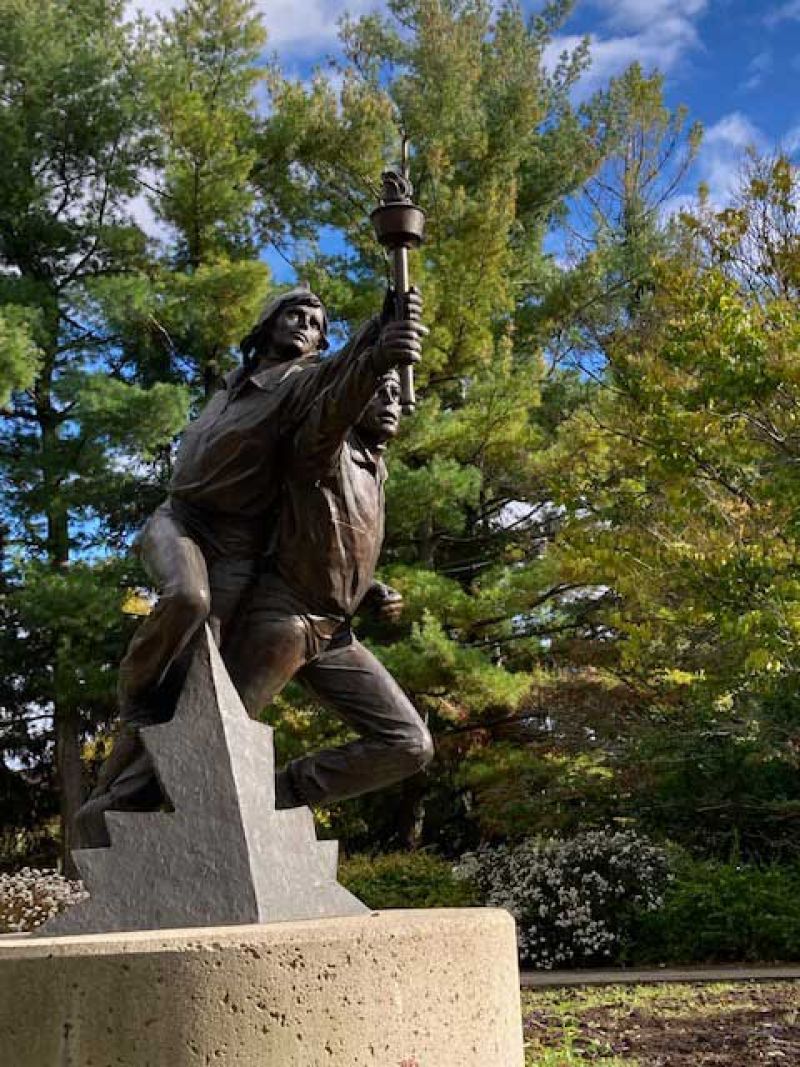
Growing up in Ottawa, I played all kinds of sports and games. Hockey, in winter, like so many boys (and some girls) of the 1970s. We spent hours at various indoor arenas and at the out-door rink in the local park. I also skied, both downhill and cross country. And did a little speed skating. Then came spring and summer, where the choices exploded: tennis at the public courts down the street, baseball or softball in the park, soccer on pitches across the city, and our large suburban backyards, swimming, football and more.
Then there was cycling. Mostly we rode our bikes to get places: school, a friend’s house, the park, the river… Cycling would become a “sport” for me at university, where I also learned to combine it with swimming and running as a triathlete. Now, 40 years on, my body doesn’t let me do some of these sports, but cycling remains a constant. It’s still a mode of transport, but also a source of joy, a means of staying fit, and a way to share the spaces and stories of my city with people as a professional tour guide.
Connected to Ottawa’s sport and recreation community all my life, I’ve come to know a lot about the evolution of sport in this city. I’ve also met fascinating people, been to memora-ble events and learned remarkable stories. So, a couple of years ago I began thinking about sharing what I know and what I have seen and experienced as part of a tour. Something that would interest more than just a sport fanatic. A tour that not only showed visitors where mem-orable events took place, but what the average person was doing for fun and fitness over the 150-plus years that Ottawa has been Canada’s capital. Who was playing what and where? Who was not, because they weren’t allowed to, or didn’t have the means or the right social standing?
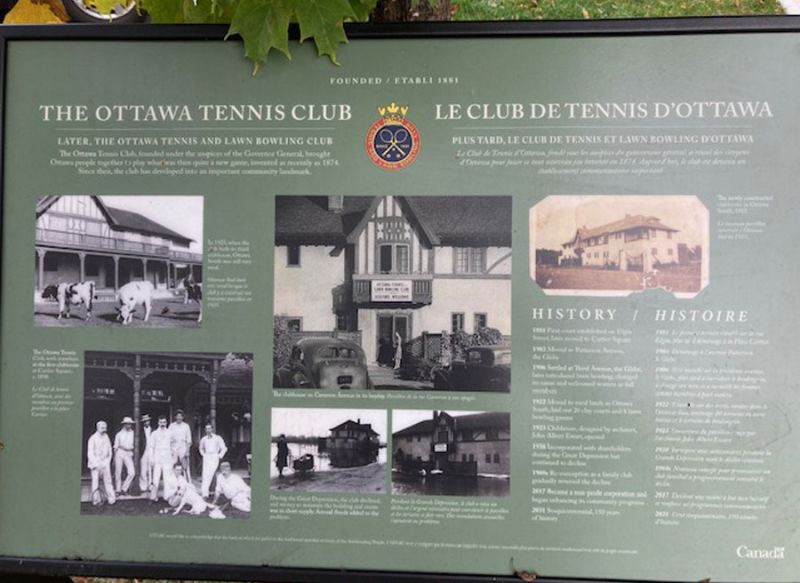
I wanted to do more than recite a series of names and dates. I wanted to find a narrative that would be both informative and intriguing. What emerged was the tour we at Escape Bike Tours & Rentals are launching this spring. We call it Good Sports, and we invite our clients to “Ex-plore the sites, culture and history of Ottawa through the sports people play and love.” How has society changed over these past 150 years, and what has this meant for expanding op-portunities for people to learn, enjoy and maybe even excel at activities they have always dreamed of doing? Or maybe ones they could not have imagined playing until they were in-spired by a particular athlete or team, or invited out by a friend to give it a try. In the latter 19th century and early 20th, Ottawa was a city where what you played depended on who you were— defined to a significant degree by race, religion, gender, income and social standing. This was not an era of “everyone is welcome.” That would change, but gradually, and in some cases grudgingly (for example, allowing more ice time to girls and women that wanted to play hockey). But where there were barriers, there were always people who were ready to push against them. When they succeeded, it was sometimes through persistence and often through sheer talent. How could you hold back somebody of exceptional skill?
Today, we can almost say everyone is welcome in any sport. Almost, because there are still places where a person who in some way doesn’t fit the mould is not entirely welcome, even if not overtly excluded. Sometimes they can’t picture themselves doing that activity be-cause they don’t see role models to whom they can relate. We have come a long way, but still have a little way to go. Fortunately most sports bodies are aware of this, and doing something to correct it.
My Good Sports tour uses this narrative of opportunity and evolution. But in a subtle way, because it is the stories of people, teams, venues and events— in addition to stops at a number of special places—that are the “star” of the tour.
Here is a small sample to whet your appetite.
- Lord Stanley of Preston was governor general of Canada from 1888-1893. He is best known for donating the trophy soon dubbed The Stanley Cup, now awarded to the top hockey team in North America. A monument called Lord Stanley’s Gift can be seen at the start of our tour on Sparks Street.
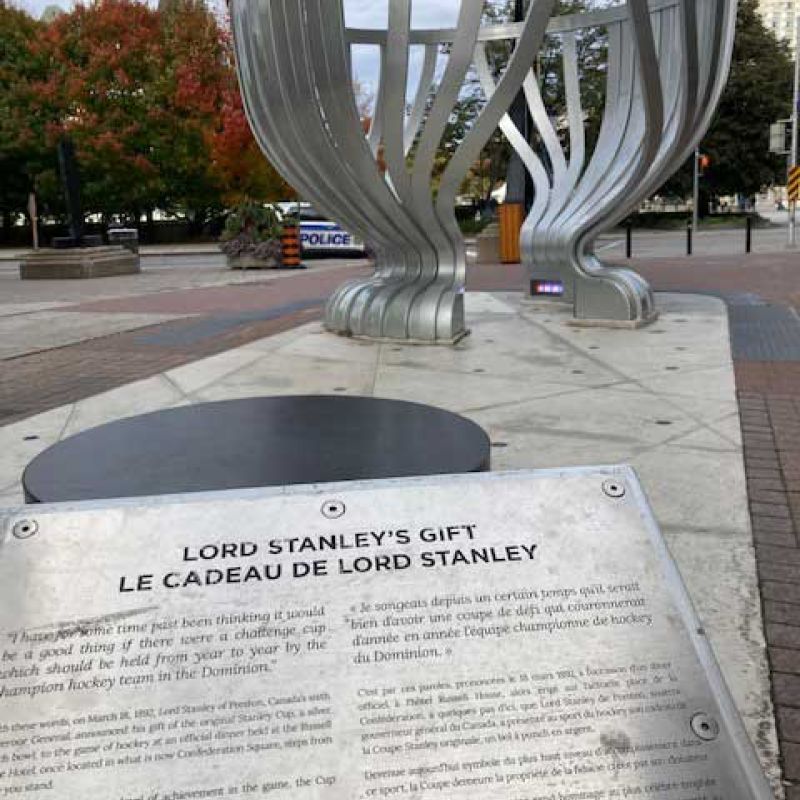
- Two of his sons loved hockey so much they played on a team called the Rideau Hall Rebels, travelling to matches in the governor general’s private rail car. Privileged rebels?
- Equally passionate sister Isobel played in the first organized women’s match in 1889.
- The Minto Skating Club was once a world leader for figure skaters. It started outdoor at Rideau Hall. Famous champions include Barbara Ann Scott, Don Jackson and the Duch-esnay brother-sister pair. An infamous member was Joachim von Ribbentrop.
- When Barbara Ann Scott traveled to the world figure skating championships in Europe in 1947, it was only possible because supporters helped pay. Their belief in her was well placed: she became world champion and then an Olympic gold medallist in 1948.
- The Ottawa Wolves Rugby Football Club was founded in 2008 to encourage participation in rugby among those who have been under-represented. Team members are predominantly part of the LGBTQA community, but everyone is welcome.
- City Council voted against a proposal to maintain the Rideau Canal for skating in 1970, because it was “not likely to be used by many.” The federal National Capital Commission went ahead anyway in 1971, and the Rideau Canal Skateway has become a mainstay for recreational skating and as a major tourism draw (as long as the weather cooperates!)
- How did the Flora Footbridge get its name? Flora MacDonald was a bridge-building parlia-mentarian who lived next to the Canal for 40 years. And, as many locals will confirm, she loved to speed skate and would gladly chat while skating.
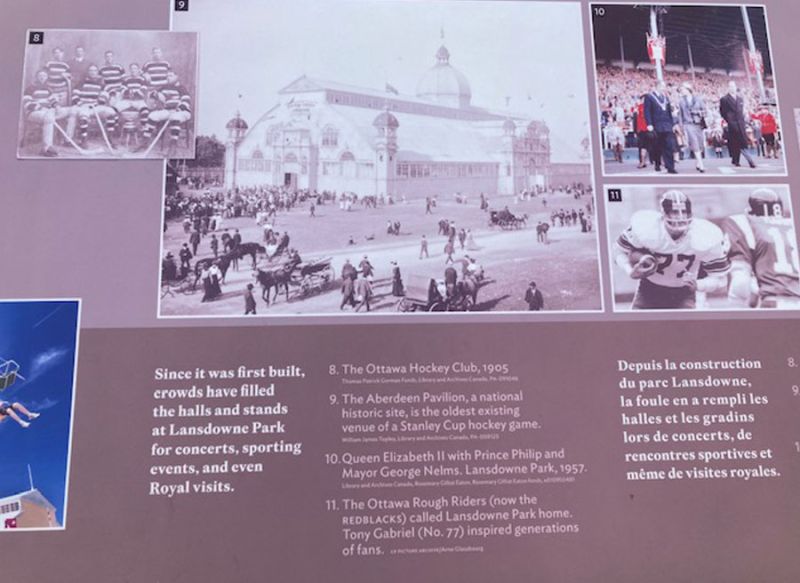
- The very exclusive Ottawa Tennis Club added lawn bowling in the 1920s when golf began drawing away members. Initially on Elgin Street, it moved to two Glebe loca-tions before settling in Old Ottawa South. But lawn bowling is now gone and it is beach vol-leyball that draws a crowd of young enthusiasts to the club.
- The Carleton University men’s basketball team is easily the most successful in the country.
- Not content to watch men win national championships, the women have won the last two.
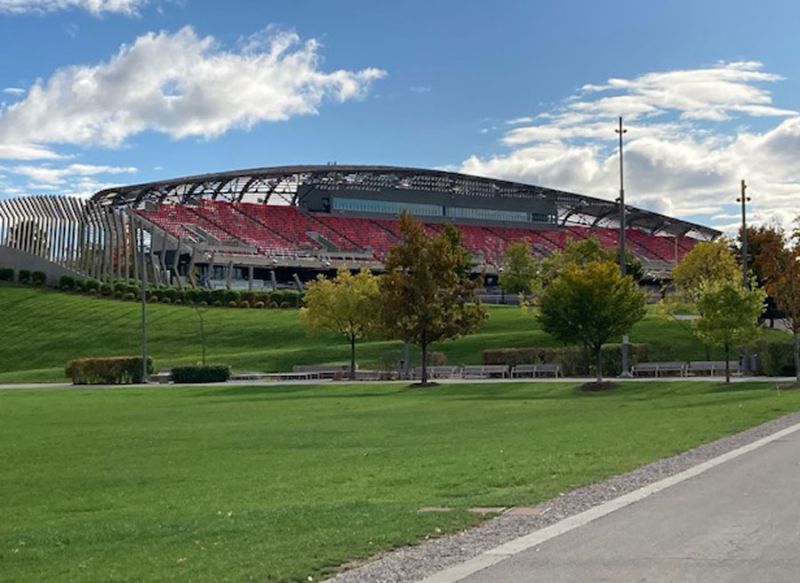
- Lansdowne Park has been an event hub across three centuries. It hosted the first women’s hockey world championship in 1990 and now a popular professional team.
Are you intrigued by Ottawa’s sport history and stories? Why not joining the Escape Good Sport Bike Tour or rent a bike and visit some of these landmarks on your own?
Author: David Chernushenko, Escape tour guide